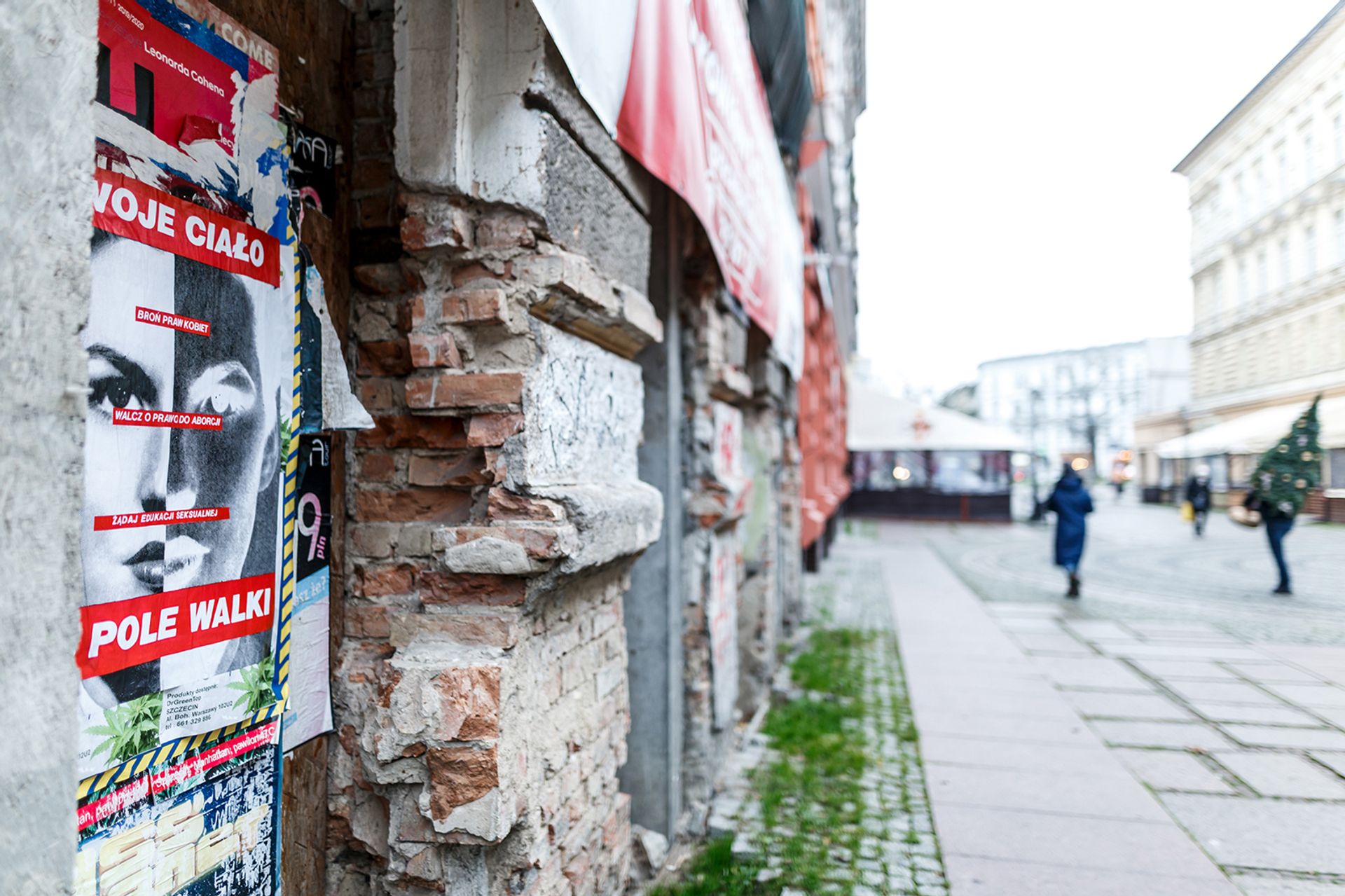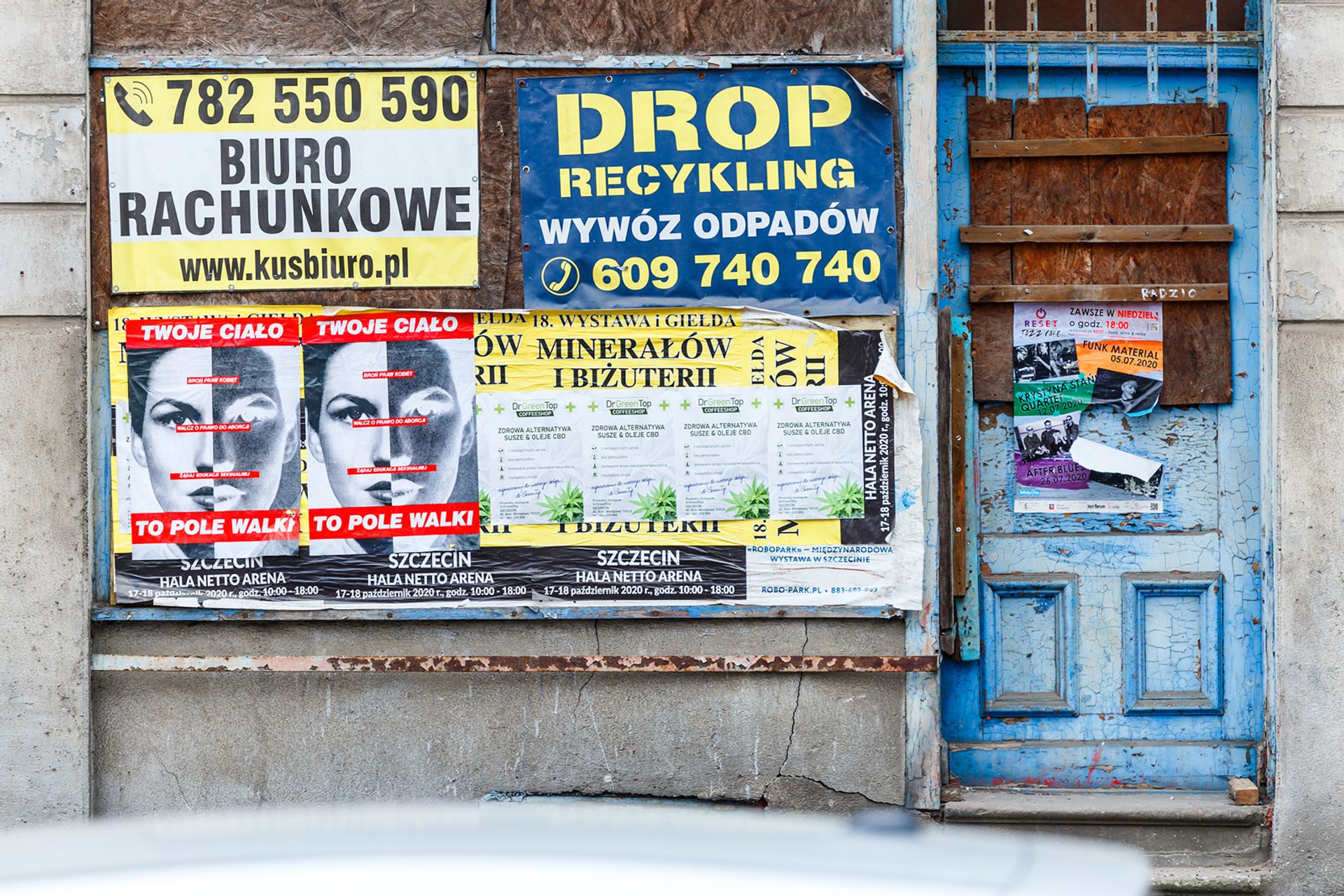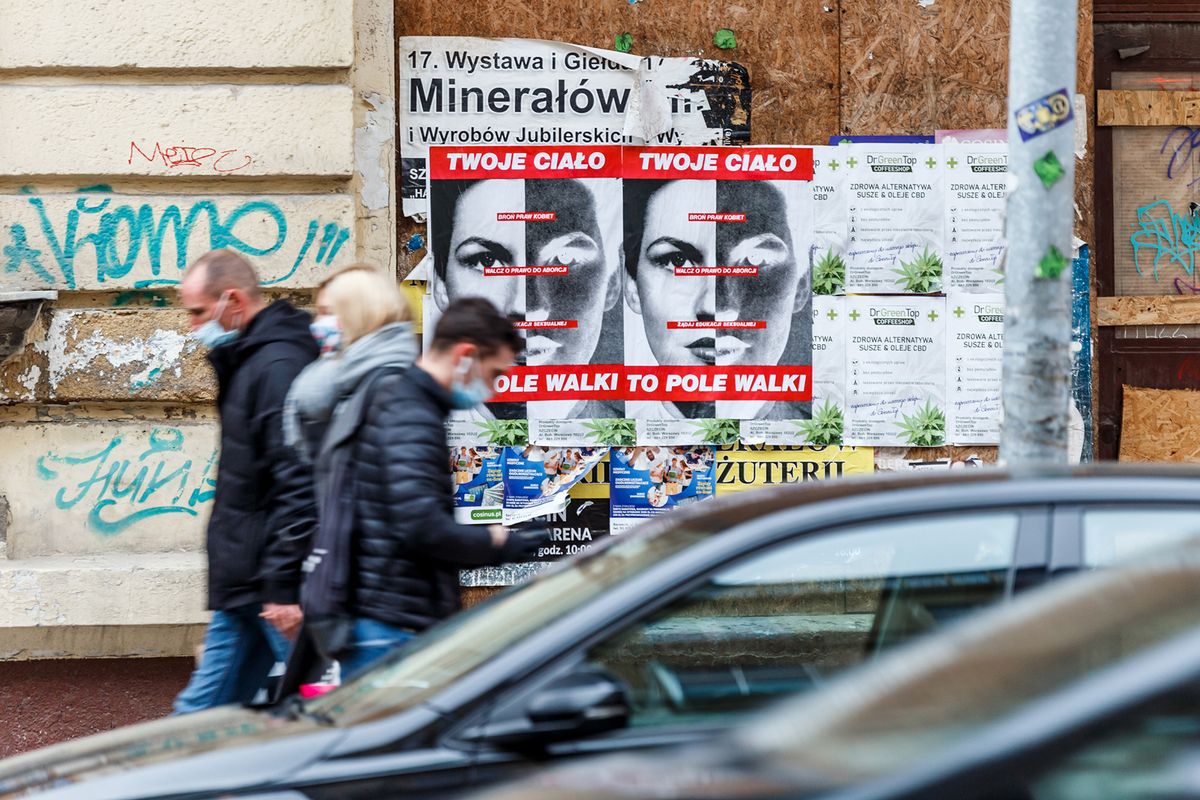As protests ramp up against the right-wing Polish government’s tightening of already restrictive abortion laws, Barbara Kruger’s seminal 1989 poster, Your Body is a Battleground, has once again gone on show in the eastern European country.
Over the past two weeks, more than 100 posters have been distributed in the streets of Szczecin, considered one of Poland’s most liberal cities, as part of a project by the TRAFO Center for Contemporary Art.
On 22 October, Poland's constitutional court ruled that abortion is illegal even in cases where there are severe foetal abnormalities. Almost all of the country's 1,000 legal terminations a year are carried out for this reason; under the new law, abortions can only be carried out in instances of rape, incest and when the mother's life is at risk.

© Andrzeh Golc
Kruger tells The Art Newspaper she has been “riveted” by the “hugely brave protests” in Poland, compelling her to revisit her poster project from many years ago.
The US artist says: “The urgent and brave protesting of marginalised, disempowered and newly empowered bodies is an insistent threat to the dominant and extremist choreographies of religion, power, and politics in Poland. The brazen hypocrisy of the Church and its predictable fist bumping with the political right make for a grotesque dance of male bonding and resolute abuse of power.”
Kruger originally made the graphic work of a woman with a bisected face for the Women’s March in Washington DC in 1989, which had been organised because the Republicans were trying to overturn Roe vs Wade, the 1973 ruling which made abortion legal in the US.
Two years later, in 1991, when women’s rights were also under attack in Poland, it was translated into Polish and 500 posters were distributed throughout Warsaw. The images only lasted one weekend before being torn down or covered up. Six months later, a Polish feminist group agreed to distribute the posters once more, pasting the works in hard-to-reach spots and ensuring the image became part of Polish history.

© Andrzej Golc
Milada Slizinska, then the curator of the Ujazdowski Castle Centre for Contemporary Art in Warsaw, was instrumental in bringing Kruger’s campaign to Poland in the 1990s. Speaking to the Gentlewoman magazine earlier this year, Slizinska describes how women’s rights were being eroded. She says: “When Solidarity came to power in 1989, all of a sudden, the rules against sexual education and abortion became stronger and stronger. The political climate had unexpectedly turned against women’s rights, so I asked Barbara to work with us. This is where our problems started.”
Slizinska recalls how the museum's budget came from the minister of culture, “and our director was too scared to fund the printing and distribution of Barbara’s poster”. Furthermore, Kruger refused to let the American embassy pay for her flight, so Slizinska booked the US artist to give a lecture in Warsaw and was able to pay for her that way.
Stanislaw Ruksza, the director of TRAFO, also remembers the impact of Kruger’s project. “Back then, I was a teenager, but I remember the posters were one of the first works in the Polish public space of the transformation era that got a reaction from passers-by. It was the beginning of—or perhaps an impulse for—further important public works in Poland,” he says.
Ruksza notes how Kruger’s posters had a lasting impact on Polish artists during the late 1990s including Krzysztof Wodiczko, Artur Zmijewski, Katarzyna Kozyra and Pawel Althamer—all of whom “have provided a powerful commentary on the Polish reality and, frequently, openly confronted the conservative discourse”.
As for the seeming lack of progress over the past 30 years, Kruger says she is “not at all surprised that the struggle for women’s reproductive freedom is constant and ongoing”. She adds: “The need to control minds and bodies and to destroy difference has been horrifically acted out across centuries and continents. Contestations around gender, race, and class loom larger now than ever.”
The emergence of Donald Trump in the US “signals a consolidation of the forces of rage, shaming, and revenge and speaks not only to the gathering global wave of autocratic rule but also to the failures of some of the left’s weak rhetorical skills and pathetic inability to ‘read the room’”, Kruger says.
“And added to these challenges and inequities is the horrific fact that we are living and dying amidst the looming tragedies of a planetary pandemic in which some are more insulated than others. Whose work and body is defined as ‘essential’? Who survives and who does not?”


